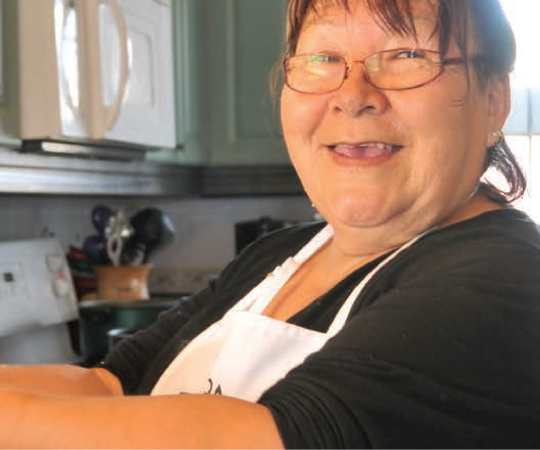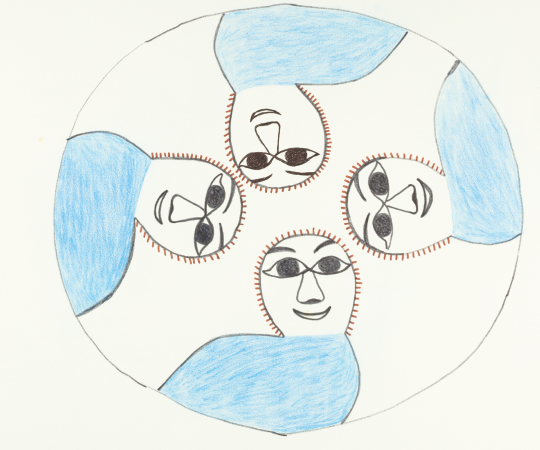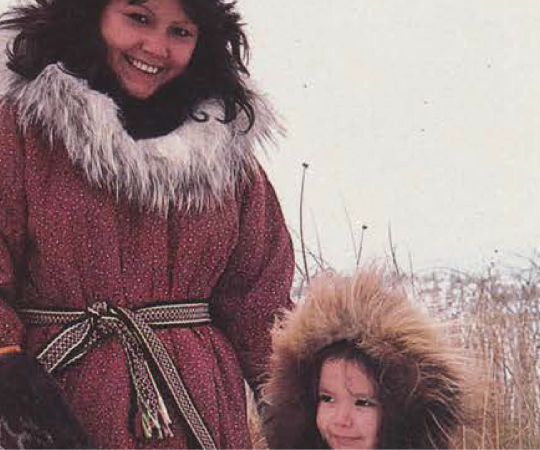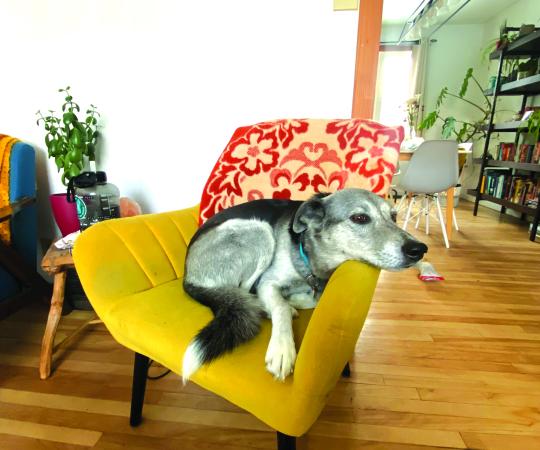Traditional inland-Tlingit performance troupe, the Dakhká Khwáan Dancers, are on the move. The 30-strong group of Whitehorse-based singers, dancers and drummers has toured Canada, collaborated with electronic artist DJ Dash, and collected awards and nominations along the way. They’ve also stayed true to their mission: to reclaim and revitalize parts of their culture that have gone “hazy” through colonization—and to do it with humility and authenticity.
But nothing could have prepared them for the loss of their founder and guiding elder, Doris McLean, in January. After 40 days of mourning—no dancing or practicing whatsoever—the Dakhká Khwáan Dancers have emerged with renewed drive and focus, including the release of a new song, ‘Guna,’ a tribute to McLean that was written in collaboration with Winnipeg folk musician Matt Epp. Marilyn Jensen, the current leader of the group and the daughter of Doris McLean, spoke with Up Here.
Up Here: Condolences on the passing of your mother. What did she mean to you and the Dakhká Khwáan Dancers?
Marilyn Jensen: Well, my mom was just an incredible, trailblazing, legend of a rockstar woman—you know? Just fearless. And she had such vision for us, her children, her people, and her community: getting us all dancing when we were little kids in the ‘70s. When I think about how hard it is to lead the group now, compared to what she did in the ‘70s, there were so many obstacles. Society was not anywhere near as supportive and encouraging. Back then it was just, “Dirty Indian, what are you doing?” My mom always told us, “You’re very, very, very blessed to be able to sing these songs. It’s a miracle. I don’t want you to ever forget that I was not allowed to sing the songs.”
When she died, it was really heartbreaking and earth-shattering. The whole world felt like it ended. But she was very clear about what she wanted. One of the things she said to me very clearly was, “I want you to keep the dance group going. Under no circumstances do you let this slide. You guys need to keep dancing.”
UH: You recently wrote and produced ‘Guna’ in her honour, in collaboration with singer-songwriter Matt Epp. How did this song come about?
MJ: We met Matt at the Atlin Music Festival in 2017. We started talking and we just hit it off. By the end of the weekend we said we had to do something together. He called in January and my mom was ready to die. I said, “You know, come up. But I’m going to have to do something creative for my healing and my grieving.” So he came up in April. I said to him, “I am just so sad.” Then we started. We were like, “We don’t know what the hell Dakhká Khwáan and Matt Epp are going to do.” The group came over, we jammed and then they left. All of a sudden, a melody came to mind. At one point I had told him all about my mother and how she made a ceremony out of everything and he wrote that down. And that became the main line of the song. The lyrics just came from there. And then boom, we had this song. It’s really beautiful. I feel like she was a big part of it. Like she helped us.
UH: Collaborating is new for the Dakhká Khwáan Dancers—you worked with DJ Dash on your 2017 album, ‘Deconstruct/Reconstruct,’ and snagged a nomination at the Indigenous Music Awards for it. How does upholding traditions balance with modern music?
MJ: First of all, they’re all new songs. That’s a really important message: we don’t remix our 10,000-year-old clan songs, only our brand new compositions that have come from members of our group. Reclamation of our identity has been a really huge guiding mandate for us. But then there is that other part that allows us to expand and create and add to who we are.
The love of techno and rap within members of our group, that real desire to create, to choreograph and tell a story in a different way that encapsulates who we are, our identity, but steps out into the world in a modern way. We’re definitely influenced by A Tribe Called Red.
UH: Over the last few years, you’ve stepped into the limelight, making a name for yourselves across Canada. How does that play out among the 30 members of your group?
MJ: It is a part of our teachings. We call it Haa Kusteeyí, meaning our laws, our way of life. It’s a part of our law that we have to have egos in check. Every time we practice or perform we say a prayer. Mom taught us that the creator is a part of us. So in our prayer we ask help to have humility and be humble. I think some people struggle with it a bit more than others. I say that in a loving way, because some of the people in the group have had to deal with all of a sudden being elevated, put up on a pedestal.
But we definitely have pride. There was a time when our people would hang our heads in shame. So, we learn to have healthy pride and balance it with humility.
Listen to: ‘Guna.’ The new single is now available on Soundcloud, iTunes and Spotify.










